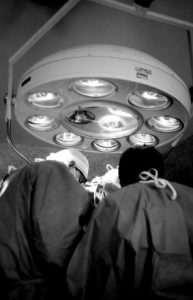In Massachusetts medical malpractice law, the “loss of chance” doctrine permits recovery of damages for the destruction or reduction of the prospect of achieving a more fa vorable outcome.
vorable outcome.
Plaintiffs are the ones who bear the burden in these cases of showing that the physician or other medical professional:
- Deviated from the accepted standard of care;
- Deviation proximately caused the injury (i.e., the loss was a foreseeable consequence of negligence and the negligence was a but-for cause of the loss of harm).
Causation of injuries in medical malpractice lawsuits is always proven through expert witness testimony. The loss of chance doctrine is usually applied to cases wherein plaintiff had a 50 percent or less chance of survival or some better outcome prior to the alleged negligence of the doctor. In cases where a plaintiff had a 50 percent or greater chance of survival/ better outcome prior to the alleged wrongful act, courts will usually apply the “more likely than not” standard. That requires plaintiff to prove it is “more likely than not” he or she would have had a better outcome were it not for defendant’s actions. The reason is under traditional concepts of causation, a plaintiff with less than 50 percent chance of a positive outcome wouldn’t have grounds for a claim. The loss of chance doctrine gives them a platform. Continue reading
 Boston Personal Injury Attorney Blog
Boston Personal Injury Attorney Blog

